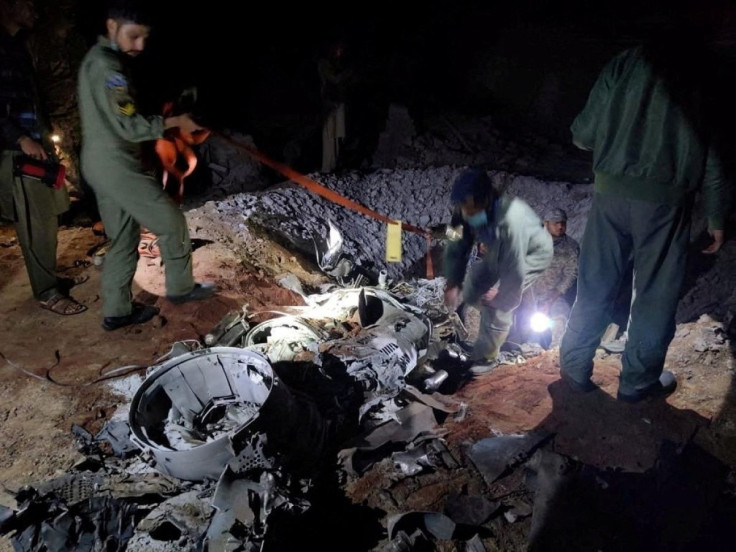Errant Missile Fiasco Calls For Intense Safety Norms Between Nuclear-armed India And Pakistan

A nuclear Pakistan's sharp response to India accidentally firing a missile into its soil March 9 has brought to the light absence of robust risk reduction protocols between the nuclear-armed rivals in South Asia.
Though India's Defense Minister Rajnath Singh took up the issue of the errant missile in parliament March 15, he merely reiterated the defense ministry's statement, issued two days after the incident.
Singh also did not name the missile, its place of origin, and which of the three services were handling it.
While India is hiding many details of the inadvertent missile firing, better sense has prevailed with Pakistan this time and Islamabad showed considerable maturity in handling the first of its kind inadvertent military error by its immediate neighbor.
Though ties between India and Pakistan are running smoothly at present, the missile mishap has raised questions about safety mechanisms among the two nuclear powers.
The risk of accidents or miscalculations between the two neighbors is always high as India and Pakistan have fought three wars and numerous smaller armed clashes among themselves.
After Pakistan took the incendiary incident seriously, India blamed it on a "technical malfunction" during the routine maintenance two days after the mishap.
"On 9 March 2022, in the course of routine maintenance, a technical malfunction led to the accidental firing of a missile," India's defense ministry said in a mere three-paragraph statement.
"Why did India fail to immediately inform Pakistan about the accidental launch of the missile?" Pakistan foreign ministry asked.
Moeed Yusuf, Pakistan's National Security Adviser, said it was "highly irresponsible" not to inform immediately of the inadvertent error.
According to Pakistan's Air Force, a "high-speed flying object" crashed near the eastern city of Mian Channu in Punjab province, about 500 kilometers from the capital Islamabad.
Pakistan's air force said the missile traveled at an altitude of 12,000m and flew 124km in Pakistani airspace before crashing.
The US-based Arms Control Association said that the missile's range is between 300km and 500km, and was capable of hitting Islamabad from its Indian launch pad.
On March 11, Pakistan's foreign ministry summoned India's chargé d'affaires to register a complaint on the incident and also urged India to share the findings of its investigation. It termed the freak incident as an unprovoked violation of its airspace.
Pakistan also asked India to explain if the missile was handled by its armed forces or rogue elements. But India has not yet come clean on this.
According to India's defense ministry, the government has ordered a high-level inquiry into the technical malfunction which led to the accidental firing of a missile.
After India announced a probe, Pakistan demanded March 12 a joint probe and action by the international community.
A Pakistan official, on condition of anonymity, told Reuters that it was possibly a BrahMos missile - a nuclear-capable cruise missile developed jointly by Russia and India. The official asserted that India has missiles in ready-to-launch positions targeting Pakistan.
The mishap has brought to light a lack of robust risk reduction protocols and failure to activate existing safety mechanisms at right time.
It is not yet officially confirmed that the 'hotline' between the directors-general of Military Operations in Delhi and Islamabad was activated by either side to calm down a possibly provocative security standoff.
As an aspiring regional power, India should have taken the lead to gain the confidence of its nuclear neighbor in the aftermath of the projectile mishap.





